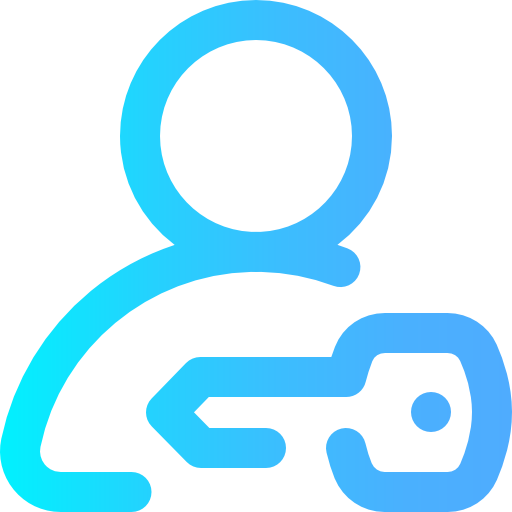Addis Ababa
Show distance
ሲኒየር መካኒክ
Full Time ቃሊቲ ቶታል ፊት ለፊት በሚያስገባው መንገድ ገባ ብሎ በሚገኘው ትራንስፖርት ዩኒት, Addis Ababa Addis Ababa June 25, 2025 - July 3, 2025 Automotive, Machinery & Mechanic - Engineering
Job
6 days ago
483
Addis Ababa
Show distance
ሲንየር መካኒክ ደረጃ -III
Full Time ቃሊቲ ቶታል ፊት ለፊት በሚያስገባው መንገድ ገባ ብሎ በሚገኘው ትራንስፖርት ዩኒት, Addis Ababa Addis Ababa June 25, 2025 - July 3, 2025 Automotive, Machinery & Mechanic
Job
6 days ago
397
Addis Ababa
Show distance
ሊድ መካኒክ
Full Time ቃሊቲ ቶታል ፊት ለፊት በሚያስገባው መንገድ ገባ ብሎ በሚገኘው ትራንስፖርት ዩኒት, Addis Ababa Addis Ababa June 25, 2025 - July 3, 2025 Automotive, Machinery & Mechanic
Job Overview
Salary
6 days ago
473
Addis Ababa
Show distance
መካኒክ-II
Full Time ቃሊቲ ቶታል ፊት ለፊት በሚያስገባው መንገድ ገባ ብሎ በሚገኘው ትራንስፖርት ዩኒት, Addis Ababa Addis Ababa June 25, 2025 - July 3, 2025 Automotive, Machinery & Mechanic - Engineering
Job Overview
6 days ago
404
Akaki Kality
Show distance
ሲንየር ደረጃ-I አውቶ ኤሌክትሪሺያን
Full Time ቃሊቲ ቶታል ፊት ለፊት በሚያስገባው መንገድ ገባ ብሎ በሚገኘው ትራንስፖርት ዩኒት, Addis Ababa Addis Ababa June 25, 2025 - July 3, 2025 Engineering - Maintenan
6 days ago
474
Addis Ababa
Show distance
Trainee Banker
Full Time N.A , Somali Region Jigjiga, Somali Region June 25, 2025 - July 1, 2025 Banking & Insurance - Business and Administration - Customer Service & Support - Graduates - Management - Sales & Marketing
Job Overview
Salary Offer As
6 days ago
470
Addis Ababa
Show distance
ጀማሪ ደህንነት እና የአካባቢ ባለሙያ
Full Time ከመገናኛ ወደ ወሰን ግሮሰሪ በሚወስደው መንገድ ሚካኤል የትራፊክ መብራቱ አጠገብ, Addis Ababa Addis Ababa June 25, 2025 - July 3, 2025 Engineering - Environm
6 days ago
461
Addis Ababa
Show distance
Project Director
Full Time Ayat S.C HQ; Halfway between Lamberet and Wesen, Near Trafic light on the way to CMC St. Michael , Addis Ababa Addis Ababa June 25, 2025 - July 3, 2025 Const. & Architecture - Engineering - Management - Program & Project Management
Job O
6 days ago
420
Addis Ababa
Show distance
በያጅ እና ቦዲ ማን
Full Time ከመገናኛ ወደ ወሰን ግሮሰሪ በሚወስደው መንገድ ሚካኤል የትራፊክ መብራቱ አጠገብ, Addis Ababa Addis Ababa June 25, 2025 - July 3, 2025 Maintenance, Skilled Labor & Manufacturing
Job O
6 days ago
446
Addis Ababa
Show distance
Store Keeper
Full Time Wollo Sefer back from Garad Mall, Addis Ababa Addis Ababa June 22, 2025 - June 28, 2025 Management - Supply Chain , Procurement & Purchasing
Job Overview
Salary Offer As per Company Scale
Experience Level Junior
Total Years Experience 1
Dat
1 week ago
377
Addis Ababa
Show distance
Data Encoder
Full Time Wollo Sefer back from Garad Mall, Addis Ababa Addis Ababa June 22, 2025 - June 28, 2025 Finance & Accounting - IT & Telecom
Job Overview
Salary Offer As per Company Scale
Experience Level Senior
Total Years Experience 4
Date Posted Jun
1 week ago
380
Addis Ababa
Show distance
Civil Engineer IV/ Assistant Resident Engineer
Contract ሜክሲኮ፣ የኢትዮጵያ መንገዶች ባለስልጣን ጀርባ በሚገኘው ቢሮ አንደኛ ፎቅ, Addis Ababa Addis Ababa June 22, 2025 - July 4, 2025 Banking & Insurance - Business and Administr
1 week ago
346
Addis Ababa
Show distance
Drafts Person
Contract ሜክሲኮ፣ የኢትዮጵያ መንገዶች ባለስልጣን ጀርባ በሚገኘው ቢሮ አንደኛ ፎቅ, Addis Ababa Addis Ababa June 22, 2025 - July 4, 2025 Banking & Insurance - Business and Administration - Const. & Architectu
1 week ago
391
Addis Ababa
Show distance
System Admin
Full Time Somale Tera HR Department, office No 502 5th Floor , Addis Ababa Addis Ababa June 22, 2025 - July 5, 2025 IT & Telecom
Job Overview
Salary Offer As per Company Scale
Experience Level Senior
Total Years Experience 5-10
Date Posted June
1 week ago
505
Addis Ababa
Show distance
ደንበኞች አስተናጋጅ
Full Time Somale Tera HR Department, office No 502 5th Floor , Addis Ababa Addis Ababa June 22, 2025 - July 5, 2025 Graduates - Maintenance, Skilled Labor & Manufacturing
Job Overview
Salary Offer As per Company Scale
Experien
1 week ago
429
Addis Ababa
Show distance
የጥበቃ ኃላፊ
Full Time Somale Tera HR Department, office No 502 5th Floor , Addis Ababa Addis Ababa June 22, 2025 - July 5, 2025 Management - Security
Job Overview
Salary Offer As per Company Scale
Experience Level Senior
Total Years Experience 5-10
D
1 week ago
276
Addis Ababa
Show distance
ጠቅላላ አገልግሎት
Full Time Somale Tera HR Department, office No 502 5th Floor , Addis Ababa Addis Ababa June 22, 2025 - July 5, 2025 Maintenance, Skilled Labor & Manufacturing
Job Overview
Salary Offer As per Company Scale
Experience Level Junior
1 week ago
147
Addis Ababa
Show distance
ምግብ አዘጋጅ
Full Time Somale Tera HR Department, office No 502 5th Floor , Addis Ababa Addis Ababa June 22, 2025 - July 5, 2025 Hotel & Hospitality - Management
Job Overview
Salary Offer As per Company Scale
Experience Level Senior
Total Years Expe
1 week ago
375
Addis Ababa
Show distance
Accountant/Cashier /Receptionist
Full Time Somale Tera HR Department, office No 502 5th Floor , Addis Ababa Addis Ababa June 22, 2025 - July 5, 2025 Finance & Accounting - Graduates
Job Overview
Salary Offer As per Company Scale
Experience Level Junior
Total
1 week ago
468
Addis Ababa
Show distance
Physiotherapist
Full Time Somale Tera HR Department, office No 502 5th Floor , Addis Ababa Addis Ababa June 22, 2025 - July 5, 2025 Graduates - Healthcare - Pharmaceutical
Job Overview
Salary Offer As per Company Scale
Experience Level Junior
Total Years Experi
1 week ago
399




